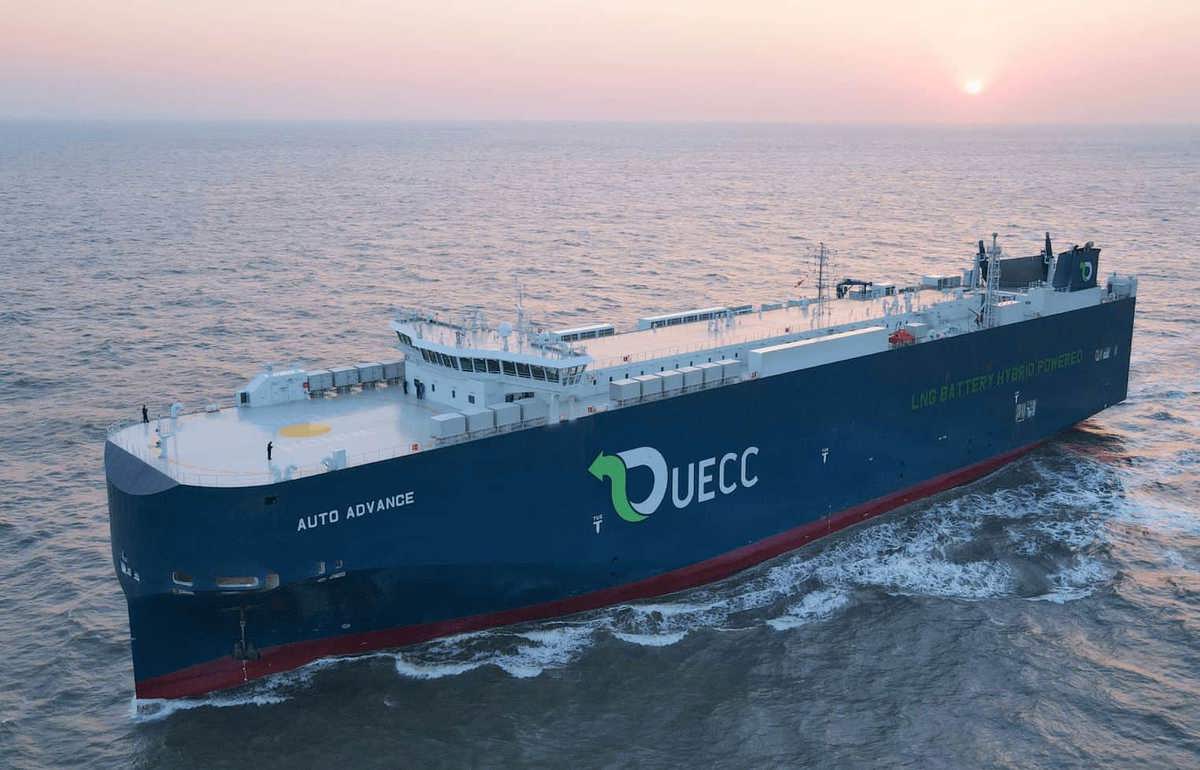Will not charge FuelEU Maritime surcharges - UECC
Norwegian shipping company United European Car Carriers (UECC) said it will not pass on FuelEU Maritime compliance costs to its customers, citing surplus compliance expected to extend beyond the 2030s.
 PHOTO: UECC's dual-fuel LNG vessel Auto Advance. United European Car Carriers
PHOTO: UECC's dual-fuel LNG vessel Auto Advance. United European Car Carriers
Instead, the shipowner will sell its surplus compliance to third-party vessels as part of the FuelEU Maritime regulation’s pooling mechanism, UECC sustainability manager Daniel Gent said.
This pooling value could help offset additional costs incurred from bunkering biofuels and liquefied biomethane (LBM), which can cost significantly more than bunkering VLSFO or LNG.
For example, the ENGINE Rotterdam VLSFO benchmark was priced at $550/mt last Friday, while the B100 biofuel benchmark was priced at $1,172/mt in Rotterdam. On a VLSFO-equivalent basis, this equates to $1,219/mt.
LBM costs about $550/mt on top of the $835/mt delivered LNG was priced at in Rotterdam last Friday. That LBM premium includes a Dutch HBE rebate, without which the LBM price would have been more than $200/mt higher, a bunker trader told ENGINE.
UECC says its fuel purchasing plan will make it overcompliant with FuelEU Maritime in many years to come. The regulation was phased in with a 2% greenhouse gas (GHG) intensity reduction target from this year, which will become stricter from 2030 and every five years thereafter towards 2050.
“UECC is firmly on track to achieve a minimum 45% reduction in carbon intensity by 2030, surpassing the IMO target, and is also set to exceed the required FuelEU Maritime (FEUM) reduction of 31% by 2040 compared to a 2020 baseline of 91.16 grams of CO2 equivalent per megajoule [gCO2e/MJ],” Gent explained.
From this year, the UECC fleet's energy mix generates a FuelEU compliance surplus by having a lower GHG intensity than the 89.34 gCO2e/MJ FuelEU target.
Gent does not say exactly how low he expects UECC's average GHG intensity to be this year, but that its current energy mix will continue to generate a surplus into the 2030s.
UECC has built up experience with low-GHG-intensity fuels, having burnt biofuels on 15 vessels since 2020, and burnt or mass-balanced LBM on five LNG-capable vessels since last year.
It struck a deal with Dutch LNG and LBM supplier Titan last year, which expands on an existing supply deal for mass-balanced LBM through most of 2025. Between July and December 2024, over 95% of the fuel delivered to UECC’s vessels by Titan was mass-balanced LBM.
Over-the-counter markets have popped up for selling and buying FuelEU compliance surpluses. Shipping companies unwilling to put low-GHG-intensity fuels on their own EU-trading vessels for various reasons can buy the surpluses of other shipping companies with overcompliant vessels.
But Gent rules out this option for UECC.
“UECC will never be in a position of needing to buy or borrow compliance units,” he said.
By Konica Bhatt
Please get in touch with comments or additional info to news@engine.online






